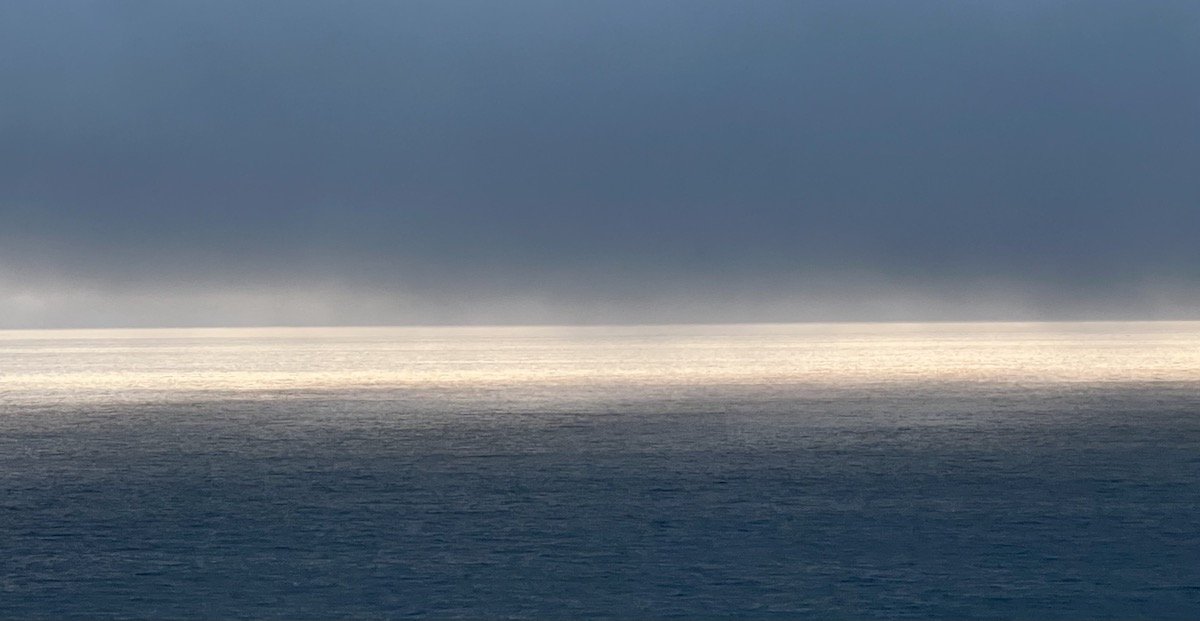Refugia
“Perhaps the outrage meriting a name like Anthropocene is about the destruction
of places and times of refuge for people and other critters...
I think our job is to make the Anthropocene as short/thin as possible
and to cultivate with each other
in every way imaginable
epochs to come that can replenish refuge.”
Refugia are protected pockets of intactness where beyond-human Selves can find safe haven from extinction despite the life-threatening changes occurring around them due to climate collapse. It seems a beautiful gesture, though there is little clarity about the interface between oases of vitality and the breakdown closing in around them. We do not know how much intactness is required to keep the planet going, so we whittle away and hope for the best. It's an extension of the thinking that asks, What is the least we can do? as in, what is the smallest amount of aid/food/space/concern required to address an urgent problem.
Still, it's a place to start, though hasty, paltry and late. It's a kind of throw-the-spaghetti-at-the-wall-and-hope-it-sticks idea that ignores the reductionist assumptions it's based on: that extinctions are the norm and fragments are the best we can hope for; that humans get to decide who and what survives, and on what terms; and that, while a few starry-eyed loonies pour themselves into alliance with and re-wilding of this broken world, the rest of us have chosen the bitter fore-taste of resignation.
Refugia has a poetic ring to it, like forest transition, which refers to the accelerated deforestation that occurs when previously inaccessible forests are cut down for farming, construction, and fuel, forcing people to travel farther to find wood and grow food. In academic circles, a forest transition is the uncoupling of population density and the amount of adjacent land under cultivation that is needed to support that population. It's an academic concept limited to the human predicament: the term doesn't acknowledge the transition required for all the beyond-human Selves made homeless in the process. Nor does it recognize causality: the severing of the relationships between humans and trees; between trees and the beyond-human beings that depend on them and that trees, in turn, depend on; and the destruction of relationships among the trees themselves. Expressions like forest transition and global warming make the unthinkable sound benign, almost pleasant - calamities camouflaged by language like a mantis on a leaf. We have taught ourselves to use language to obfuscate diminishment.
It's the same with humans: we often call killers heroes though it's far from clear what the standards are for deciding what, exactly, justifies killing and what, exactly, makes someone a hero. And, like refugia, heroes are isolated. English is particularly adept at isolation, less skillful at feeding connection: it is a language with a preponderance of nouns rather than verbs, a language that has evolved to focus on things rather than relationships. This is one of the ways we sanitize language in order to speak the unspeakable. It's the naked emperor of western mind, gowned in lavish robes of data. English is particularly adept at subtraction. As Donna Haraway says, Go outside English and the wild multiplies.
An image appears, unbidden - a photo of Jordan Neely, the young Black man who was recently murdered on the subway by Daniel Penny, a white man and veteran, who sought to restrain him, ending in Neely's avoidable death. Maybe it's Neely's quizzical expression in the photo I saw, his smooth skin and lanky build and the way he seems to be about to speak, about to take a step, to lift his arms and spin counter-clockwise to an earlier time in order to retrieve something precious. Maybe in addition to needing a meal, he was hungry for kindness, and an explanation for incomprehensible things, including his mother's murder and suddenly, his own.
What was Penny hungry for? During those long minutes of the chokehold, with others holding Neely's arms, there were many choices short of killing. What took hold of them as they took hold of Neely? If their roles had been reversed, if Penny had been a veteran struggling with mental illness and Neely an unhoused Black man who believed he was protecting fellow riders from the perceived threat of Penny's erratic behavior, would Neely be celebrated now as a hero?
Refuge is, fundamentally, relational. Each participant in the tragedy of Neely's death is a node of failure in the social ecosystem, including bystanders, including leaders, including the media, including the military. How can human refugia be created in response to an imbalance like that? We have little social intactness available to protect us beyond the sporadic generosity of individuals and sometimes groups. For Jordan Neely and too many others, that protection fell short. How do we create functional intactness? Protection begins with appreciation for beings unlike ourselves and a willingness to shelter them in our hearts.
Free will invites us to question our motivation and examine our certainty, and to acknowledge the roots of our sustenance, like the question that came during a long, restless night when, in desperation, I crawled out of bed and onto the floor to lay on my belly in the dark. The voice wanted to know, What relationships do you tend? We are accountable to the wisdom we harvest.
